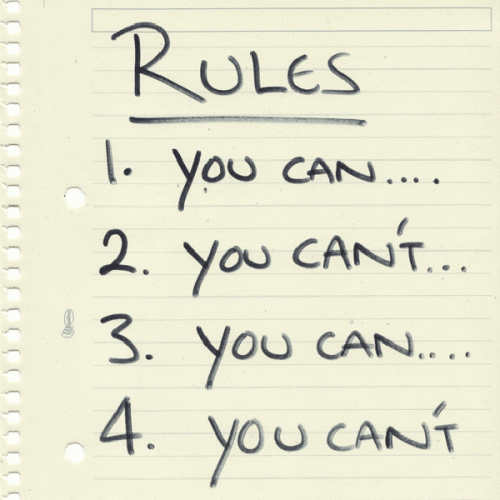
Today marks the 15th anniversary of the first post on the Webner House blog, which occurred on February 1, 2009. What began as a Christmas present from Richard in 2008 has become a daily habit and part of my standard morning wake-up routine. I have to admit that it’s been a lot of fun and somewhat fascinating, too.
According to our WordPress platform, which has proven to be easy to use and reliable, during those 15 years the blog has published 10,147 posts, collected 727,626 views, welcomed 291,005 visitors, received 6,808 comments, and garnered 4,850 subscribers. The maps provided by WordPress show that Webner House posts have been viewed by people located in countries around the world. That’s what sticking around for 15 years and producing at least one post a day will do for you.
I write about random things that are on my mind, which might be travel, science, TV shows, modern life, memories, food, sports, or just about anything else. One of the surprising things about writing blog posts is that you never know what might interest people. Our most viewed post in recent years, for example, was this one about the Mr. Green Jeans character on Captain Kangaroo, which has been checked out by thousands of people since it was published on September 20, 2022. Why has it been of more interest than other posts? Beats me–but I’m glad people seem to like it, and seem to like our humble little family blog.






 I was intrigued by the group’s rules. What was rule number 1? “No politics, PERIOD. No drama, PERIOD.” And to make that point crystal clear: “ABSOLUTELY no political, “healthy vs unhealthy” posts, medical advice, requests for sympathy or attention, or “cute little games” with the rules. NO POLITICS.” Rule number 4 is “Rudeness is not tolerated,” and adds: “If you don’t like it, move on and read something else. Comments about how *you* dislike someone else’s cooked food will be removed. Profanity will get you banned. Arguing with admins is not advised. Puke emojis and GIFs will get deleted.” Rule number 9 is “No viral videos and funny meme pictures,” and Rule number 10 reads “Accts posting Spam, scam, porn = immediate ban!” Other rules include things like no selling of items and agreeing that administrators may delete posts.
I was intrigued by the group’s rules. What was rule number 1? “No politics, PERIOD. No drama, PERIOD.” And to make that point crystal clear: “ABSOLUTELY no political, “healthy vs unhealthy” posts, medical advice, requests for sympathy or attention, or “cute little games” with the rules. NO POLITICS.” Rule number 4 is “Rudeness is not tolerated,” and adds: “If you don’t like it, move on and read something else. Comments about how *you* dislike someone else’s cooked food will be removed. Profanity will get you banned. Arguing with admins is not advised. Puke emojis and GIFs will get deleted.” Rule number 9 is “No viral videos and funny meme pictures,” and Rule number 10 reads “Accts posting Spam, scam, porn = immediate ban!” Other rules include things like no selling of items and agreeing that administrators may delete posts. I’ve come to realize that there is an entirely unknown field of “personalities” when I’ve seen them as the subject of articles on the msn.com website, or the news stories that now pop up when I access the Google website on my phone. One recent example was
I’ve come to realize that there is an entirely unknown field of “personalities” when I’ve seen them as the subject of articles on the msn.com website, or the news stories that now pop up when I access the Google website on my phone. One recent example was  So, what’s the best way to emphasize the written word? The basic options, currently, are using underlines, italics, or boldface. Some people then use a combination of the three to give even more emphasis. (Back when I first started working, in the days long before social media and texting, some people used all caps to provide emphasis. Now the all-caps look is generally perceived by the reader as screaming, and there’s very little being written about that needs that much emphasis. What you want is for the reader’s internal voice to “think” the word being emphasized just a bit louder than the rest of the text, and not have them mentally screaming like a character in a bad teen horror movie.)
So, what’s the best way to emphasize the written word? The basic options, currently, are using underlines, italics, or boldface. Some people then use a combination of the three to give even more emphasis. (Back when I first started working, in the days long before social media and texting, some people used all caps to provide emphasis. Now the all-caps look is generally perceived by the reader as screaming, and there’s very little being written about that needs that much emphasis. What you want is for the reader’s internal voice to “think” the word being emphasized just a bit louder than the rest of the text, and not have them mentally screaming like a character in a bad teen horror movie.)
 Well, apparently because . . . it’s Facebook and it can do whatever the hell it wants.
Well, apparently because . . . it’s Facebook and it can do whatever the hell it wants.  When I was going to college, lack of happiness and “deprioritizing” personal happiness and fulfillment was not a problem. If anything, Ohio State students of the ’70s tended to overprioritize their dedicated, incessant, deep-seated, Frodo Baggins-like quest for happiness. The notion that fresh-faced students, still possessing the bloom of youth and newly freed from the constant supervision and irksome rules of Mom and Dad, need to take a college class to learn how to be happier would have been totally alien to the undergrads of my era. And it’s really kind of depressing to think that, in any era, college students would need to sit in a lecture hall to get tips on how to be happier. College must have become a grim, hellish place indeed!
When I was going to college, lack of happiness and “deprioritizing” personal happiness and fulfillment was not a problem. If anything, Ohio State students of the ’70s tended to overprioritize their dedicated, incessant, deep-seated, Frodo Baggins-like quest for happiness. The notion that fresh-faced students, still possessing the bloom of youth and newly freed from the constant supervision and irksome rules of Mom and Dad, need to take a college class to learn how to be happier would have been totally alien to the undergrads of my era. And it’s really kind of depressing to think that, in any era, college students would need to sit in a lecture hall to get tips on how to be happier. College must have become a grim, hellish place indeed! Sometimes, though, the words aren’t exactly easy to fit into everyday conversation. On Monday, for example, the word was “eclogue.” What’s an eclogue (pronounced ek-log), you ask? Why, it’s a poem in which shepherds converse, of course. The sentence the calendar offers to illustrate its meaning is: “The poet’s new volume offers modern translations of Virgil’s eclogues.” Even at an erudite workplace like mine, it’s hard to imagine a discussion where you could smoothly use “eclogue.”
Sometimes, though, the words aren’t exactly easy to fit into everyday conversation. On Monday, for example, the word was “eclogue.” What’s an eclogue (pronounced ek-log), you ask? Why, it’s a poem in which shepherds converse, of course. The sentence the calendar offers to illustrate its meaning is: “The poet’s new volume offers modern translations of Virgil’s eclogues.” Even at an erudite workplace like mine, it’s hard to imagine a discussion where you could smoothly use “eclogue.” When I saw we hit 400,000 views, I searched Google for photos representing 400,000. There are a lot of pictures of odometers hitting 400,000, and when I thought about it I realized that our family blog is a lot like an old, dependable car. Vehicles that make it to 400,000 miles aren’t the flashy, expensive cars that men buy when they’re experiencing mid-life crises. No, vehicles that make it to 400,000 miles are the basic, everyday sources of family or work transportation that have suffered some battle scars during their years of service. They are the battered pick-up truck, or the dented station wagon with the scratch on the side, or the Honda Accord that still has a faint but familiar sour smell after one of your kids spilled milk in the back seat years ago on a hot summer day and didn’t tell you until you got back into the car and the spoiled smell made you want to gag, but you really liked the reliability of the car so much that you scrubbed the back seat and aired it out and used air freshener and took it to the car wash for a shampoo and couldn’t quite completely eliminate the smell, but decided you were willing to live with it.
When I saw we hit 400,000 views, I searched Google for photos representing 400,000. There are a lot of pictures of odometers hitting 400,000, and when I thought about it I realized that our family blog is a lot like an old, dependable car. Vehicles that make it to 400,000 miles aren’t the flashy, expensive cars that men buy when they’re experiencing mid-life crises. No, vehicles that make it to 400,000 miles are the basic, everyday sources of family or work transportation that have suffered some battle scars during their years of service. They are the battered pick-up truck, or the dented station wagon with the scratch on the side, or the Honda Accord that still has a faint but familiar sour smell after one of your kids spilled milk in the back seat years ago on a hot summer day and didn’t tell you until you got back into the car and the spoiled smell made you want to gag, but you really liked the reliability of the car so much that you scrubbed the back seat and aired it out and used air freshener and took it to the car wash for a shampoo and couldn’t quite completely eliminate the smell, but decided you were willing to live with it. The most irritating aspect of the click-counting emphasis, however, are the articles that clearly are “clickbait.” You’ve seen them featured on the websites you visit, cluttering things up like unsightly litter on the side of a highway: where are members of the cast of an old TV show now, what “jaw-dropping” dresses got worn to a recent awards show, which celebrities have killed a person (number 8 will shock you!), what “weird trick” will allow you to immediately lose 20 pounds or secure your retirement, and on and on. You’ve probably gotten to the point that you don’t even notice them anymore on the websites you visit.
The most irritating aspect of the click-counting emphasis, however, are the articles that clearly are “clickbait.” You’ve seen them featured on the websites you visit, cluttering things up like unsightly litter on the side of a highway: where are members of the cast of an old TV show now, what “jaw-dropping” dresses got worn to a recent awards show, which celebrities have killed a person (number 8 will shock you!), what “weird trick” will allow you to immediately lose 20 pounds or secure your retirement, and on and on. You’ve probably gotten to the point that you don’t even notice them anymore on the websites you visit. John is an avid reader and he’s always got something interesting to say — so naturally he’s starting up a blog. It’s called
John is an avid reader and he’s always got something interesting to say — so naturally he’s starting up a blog. It’s called